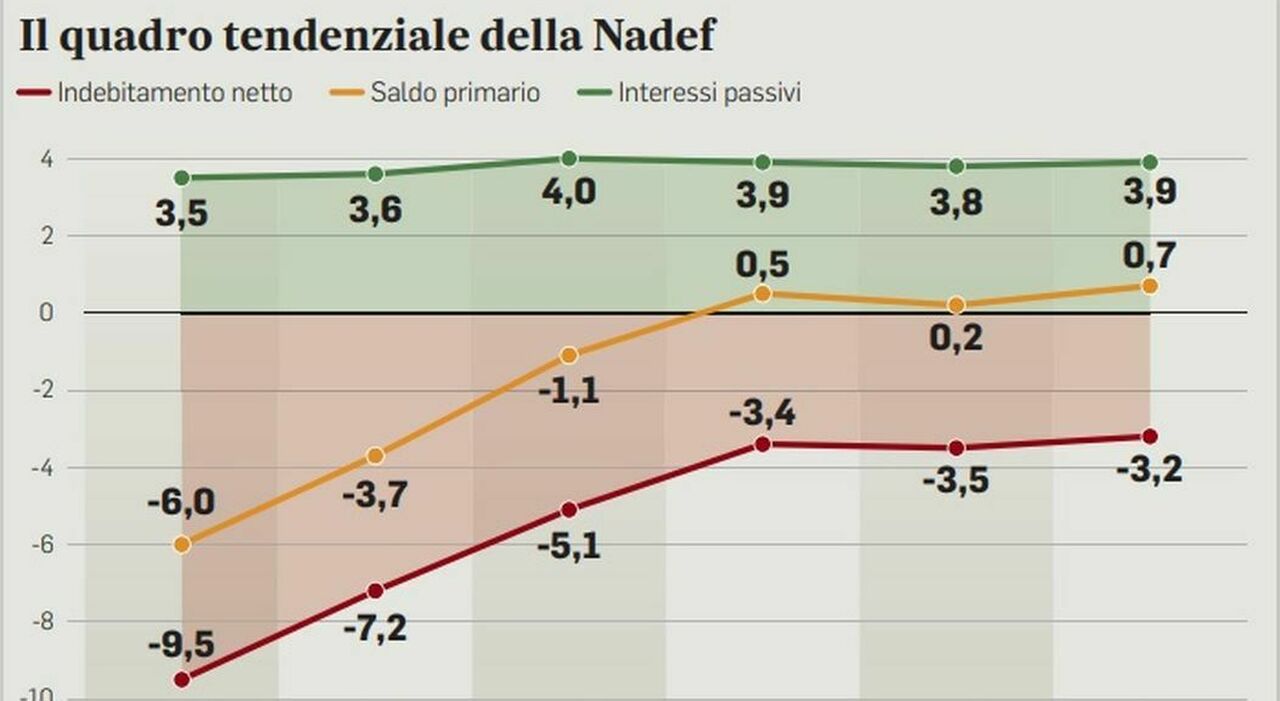It seems that the decision has now been made: to finance the budget law, the government will increase the deficit. By creating a financial space of more than 20 billion, in a maneuvering service focused on combating expensive bills. Three-quarters of the available resources will be allocated to this item, a priority given the October inflation trend, while the remaining 25 percent will be used for other measures from flat tax to pensions.
Solar time between Saturday and Sunday: It will get dark early (and we’ll have to keep the lights on for more time). Knock on bills
By next Thursday, November 4, the Cabinet will approve the new update note for economic and financial documents (NADF), including the programmatic scenario, or rather the goals set by the new government for economic growth and public accounts. . In fact, the former executive had only developed the directional framework, pending expected delivery.
Elements
A few items have yet to be determined, in light of important data coming up: like what Istat will provide on Monday with a preliminary estimate of GDP trend in the third quarter. A slight negative change is expected, a trend that may continue until the middle of next year. But at the moment, the Ministry of Economy intends to confirm an estimate of the average rate of increase in GDP of 0.6 percent for 2023, to be achieved thanks to the resumption of the second half of the year. As mentioned, the main objective of the budget law will be to mitigate as much as possible the impact of the energy crisis on homes and businesses. Three-quarters of the resources will be used for this. The total size of the maneuver has not yet been determined, but it is difficult for her to deviate from 40 billion euros. In fact it could be a little higher in the end.
bad
How will the resources be found? Specifically in NADPH, a 3.4 percent deficit was forecast for next year, which is more contained than the program target set at 3.9 percent in the spring. Half a point of GDP less, or a dowry of about 10 billion, the government could have recovered without problems. But now Palazzo Chigi and Mef think they can move forward, letting the deficit fall to 4.5 percent of GDP, 1.1 points above the original target. In this way, a much larger amount is “liberated”, that is, approximately 22 billion. Through an accounting mechanism (an advance of some expenses) more funds can be transferred to the next year than those available for the next decree under which anti-invoicing measures (particularly for companies) currently up to November. A contribution (about 4 billion) may come from European resources that can be reprogrammed. This will result in about 30 billion coverage. Other measures will then be needed, starting with a review of the expenditures of the various ministries, which Mef and Palazzo Chigi intend to strengthen.
Billing, more help thanks to VAT revenue. Giorgetti: “Priority.” Pensions, stop at the “ladder” of Fornero
© Reproduction reserved

“Infuriatingly humble analyst. Bacon maven. Proud food specialist. Certified reader. Avid writer. Zombie advocate. Incurable problem solver.”


